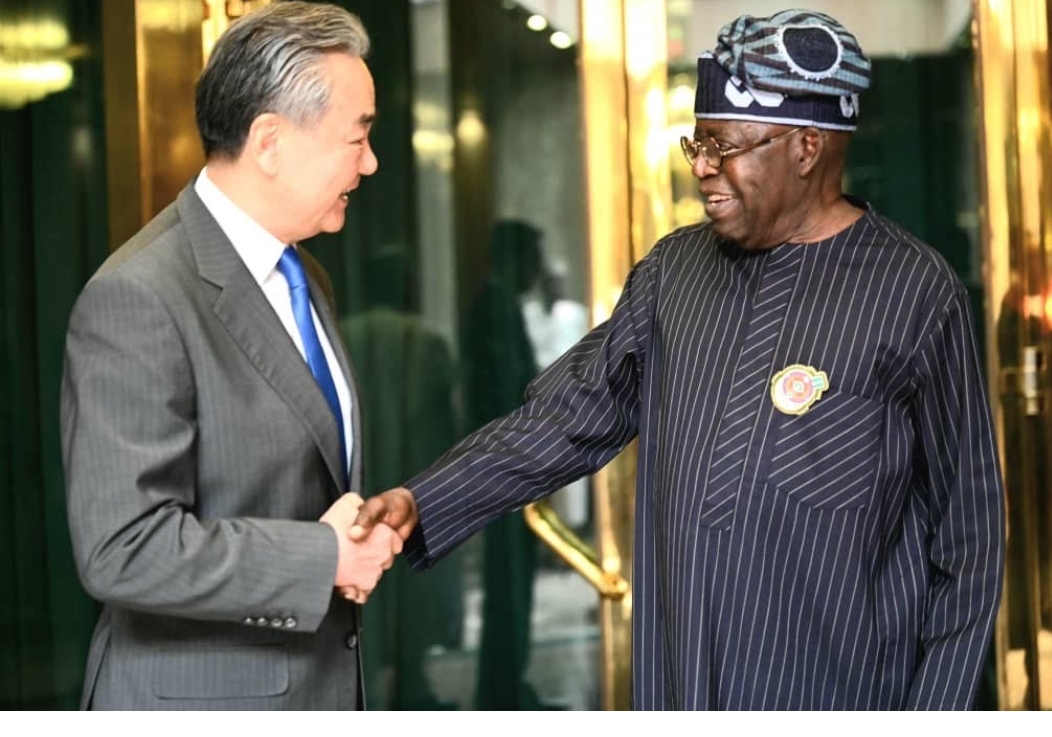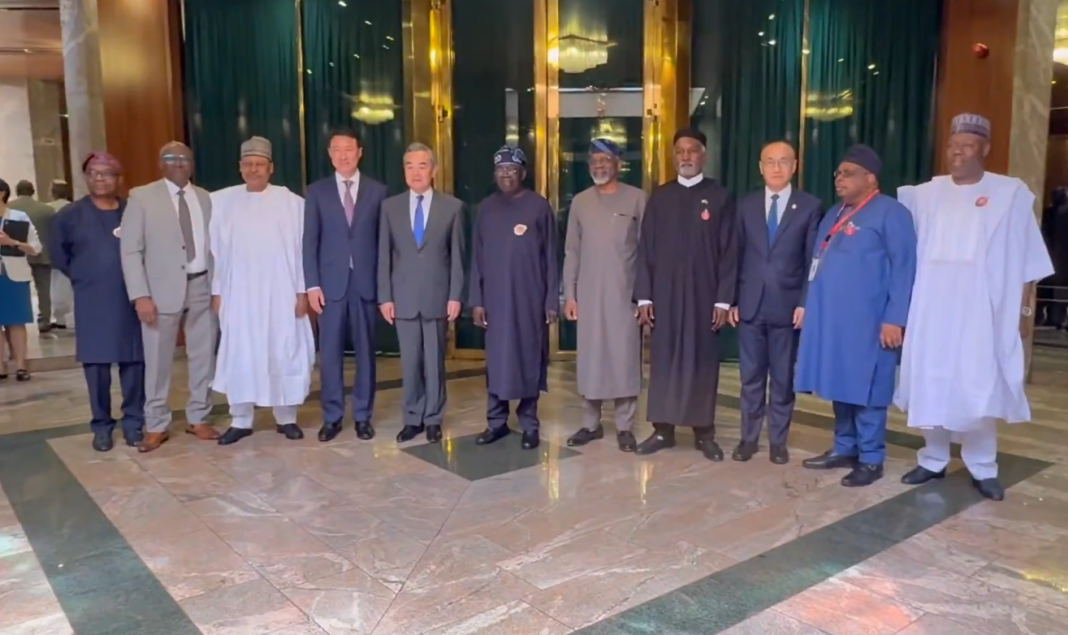Backs issuance of Panda Bond, kicks against foreign interference
Commits to infrastructural financing for Nigeria especially railway
Reaffirms commitment to African security, stability
By Gabruel Udeh
The Chinese government has agreed to Nigeria’s request to increase its currency swap line and its plan to issue Panda Bonds.
Recently, China and Nigeria renewed their currency swap agreement, valued at 15 billion yuan (approximately $2 billion), to enhance trade and investment between the two nations.
This agreement, valid for three years, aims to strengthen financial cooperation and promote the use of both currencies in bilateral transactions.
Chinese Foreign Affairs Minister Wang Yi made this disclosure at the Presidential Villa, Abuja, on Thursday while fielding questions from State House journalists after meeting with President Bola Tinubu.
Yi stated that “the currency swap agreement shows how well we have carried out our financial cooperation and sustained its momentum. As with regard to Nigeria’s wish to increase the line of the currency swap we will favourably study and consider the issue, our cooperation is going well in many ways, in terms of finance.”
Yi expressed confidence in the economic cooperation with Nigeria, especially in the areas of finance, adding that: “For instance, we welcome the panda bonds to be issued. We welcome Nigeria to issue panda bonds in China, because we have full confidence in Nigeria’s credibility. And by issuing panda bonds, Nigeria will gain good revenue and the safety is guaranteed through financial support, we are working to contribute to Nigeria’s infrastructure development in particular railway.”
He added that “Just a few days ago, Chinese banks supported through financial funds, the building of the phase three of the railway modernisation project, and it has been delivered. So there are many details that are taking place between our cooperation.”
The Chinese Foreign Minister also outlined China’s steadfast commitment to supporting peace and stability in Africa.
He reiterated China’s opposition to foreign interference, stating that China firmly supports the African Union and regional organisations like ECOWAS (Economic Community of West African States) in their constructive roles.
Yi, in his response to a question regarding Africa’s security situation, stated, “Only through global solidarity can we together respond to the various security challenges.”
He outlined China’s commitment to bolstering Africa’s security capacity by providing 1 billion yuan (approximately $140 million) in military assistance, which will include training for 6,000 military personnel and 1,000 police officers from various African nations. “We will continue to support the building of the African standby force and rapid response forces,” he added, emphasising China’s dedication to enhancing peacekeeping operations in collaboration with African countries.
At the United Nations Security Council, Yi assured that “China’s vote will always go to Africa,” reaffirming Beijing’s commitment to amplifying the voices of African nations on global platforms. He also highlighted China’s role as a significant contributor to peacekeeping operations on the continent.
He further elaborated on China’s strategy for achieving security through development, stating that Beijing aims to utilise 360 billion yuan in funding support announced at the FOCAC summit to deepen cooperation across various sectors. “Through this partnership, we will work with Africa to address the root causes of insecurity and achieve long-term stability through development,” he explained.
Recognising Nigeria’s pivotal role as chair of ECOWAS and its influence in Western Africa and the Sahel region, Wang expressed China’s support for Nigeria in rallying regional countries towards unity and cooperation. “China supports Nigeria in achieving strength through unity and promoting security through cooperation,” he stated.
Yi reiterated China’s commitment to fostering a robust partnership with Africa based on mutual respect and shared development goals. This visit marks a crucial step in reinforcing China-Africa relations as both regions navigate an increasingly complex global landscape together.
Yi’s statements on security interference were echoed by Nigerian Foreign Affairs Minister Yusuf Tuggar, who highlighted Nigeria’s leadership role within the Economic Community of West African States (ECOWAS) and its broader influence on the continent. Tuggar remarked, “Nigeria has consistently proved effective in leading other countries in our region in addressing challenges to peace and security.”
He stressed that collaboration with major powers like China is vital for Nigeria’s efforts to maintain stability.
Tuggar also expressed concerns about external influences complicating Nigeria’s ability to lead regional security initiatives. “Whenever Nigeria is left out of such arrangements, it becomes more challenging,” he stated.
He called for a focus on domestic production of military equipment, advocating for local manufacturing capabilities as a means to enhance Nigeria’s self-reliance in defence matters.
“We want to work with countries like China in domesticating production of military equipment,” Tuggar added.
He stressed that Nigeria’s responsible governance and constitutional adherence have earned it confidence from international partners.





